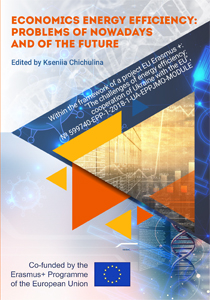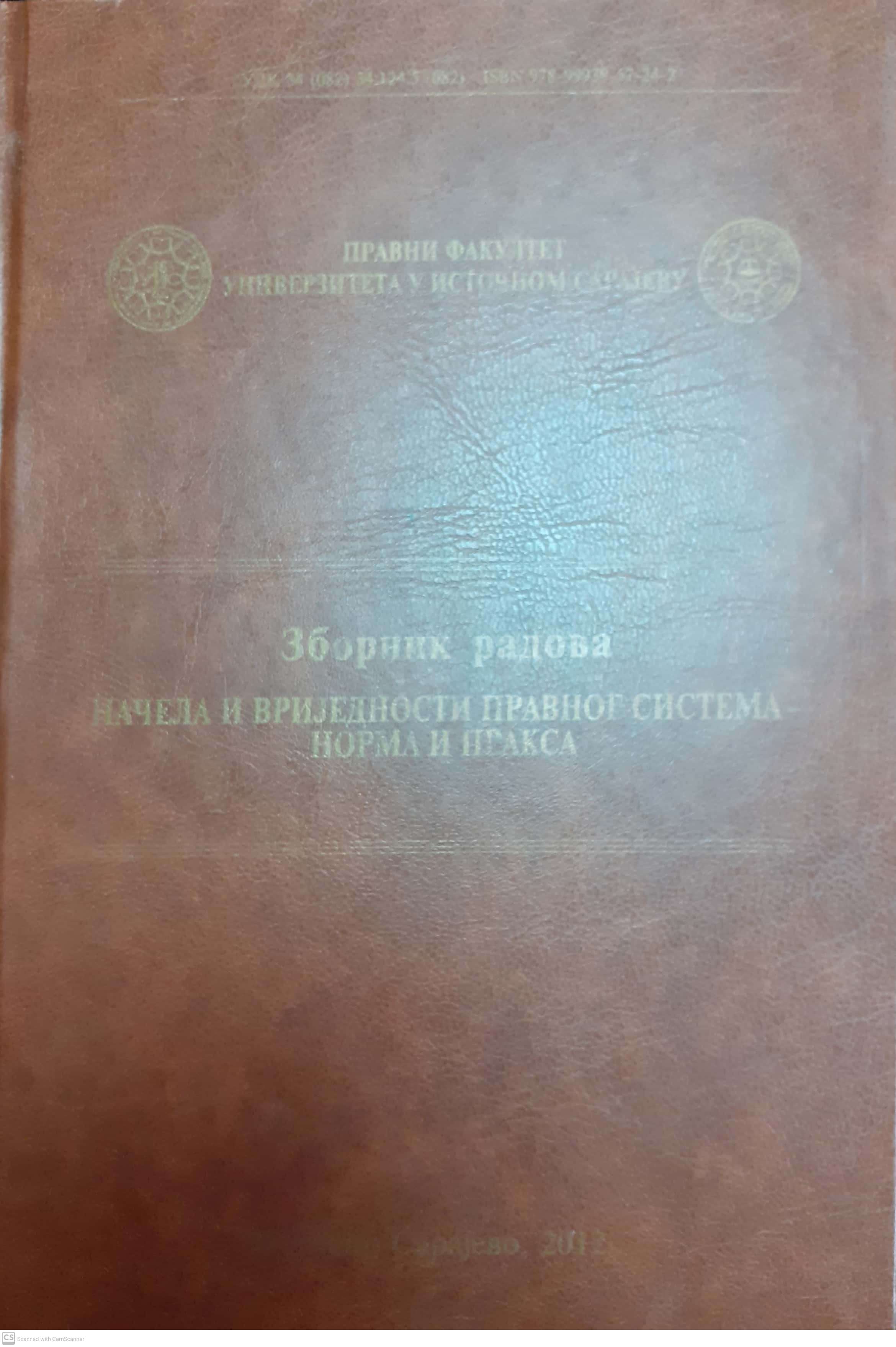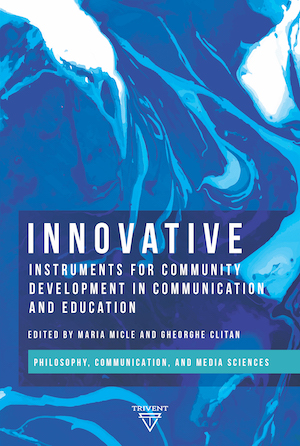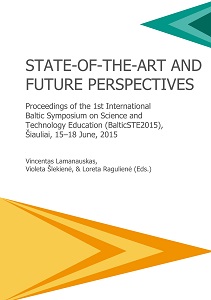
We kindly inform you that, as long as the subject affiliation of our 300.000+ articles is in progress, you might get unsufficient or no results on your third level or second level search. In this case, please broaden your search criteria.





The status of the parliament as a real political decision-making body is relativised in the modern world according to the general context of relations which exist between the political authorities in the parliamentary system. The parliamentary majority, by which is the government formed, is the same majority which adopts the government’s proposals of the bill. Exclusive position of the government as an authorized initiator and the operation of parliamentary committees don’t make the work of the parliament in plenary sessions, in effect, a central stage of the legislative process and the actual basis of decision-making process. Does it increase the efficiency of the legislative process in terms of faster and higher quality of work or does the speed of the procedure lower its quality? There is no doubt that the answer is going in the positive direction, if you look at the organizational and procedural safeguards that stand in the account of parliamentary committees and government, but the deficiencies which exist in this sense do not allow a clear and unambiguous conclusion. This paper also analyzed forms of direct participation of the citizen, as the original holders of sovereignty, in the legislative process and its effects on the efficacy of the procedure.
More...
Conflict of interest (incompatibility) is a complex social phenomenon that can manifest itself in different forms. Conflict of interest presupposes the existence of different interests that are conflicting. Realization of a conflict of interest leads to frustration and a miscarriage of another, opposite interest. Conflict of interest in one position or function means that you benefit because you are on second function or position, and vice versa: that second function gives you benefits for first function. Thus, the interests or benefits of individuals, civil servants or officials are evident due to the fact that such persons are in a position that allows them to benefit from them. Here we have two public interests in conflict. However, the legislator speaks of a conflict of interest only in the context of public and private interests. In this sense realization of private interest can endanger and frustrate realization of public interest. However, different interests can conflict: public and private (financial, family, personal, and strangers, etc.) and two public interests between themselves.There are various categorizations of conflicts of interest. There is real and apparent conflict of interest, in which case there is no real conflict; then a current and future conflict of interest that is threatening or potential conflict, which can develop into an existing, ongoing one. Therefore, in order to prevent a conflict civil servant is obliged, from the moment he is appointed to a post, to disclose all information about his financial position, as well as information on activities and functions of members of his or hers family members. Also, there are categories of direct and indirect conflicts of interest.In state legal systems there are legislation and institutions in the form of so-called, independent bodies (Anti-corruption Agency, etc...), responsible for monitoring, identifying and sanctioning an appearance of potential and actual conflicts of interest. The law regulates their competences and procedure in the treatment of specific legal (administrative) issues, as well as the mechanisms of legal protection against their decisions. In this case, it is final judicial protection against acts of individual agencies, so called, administrative proceedings (judicial review of administrative acts) and even a constitutional dispute. Intention of these court procedures is to protect their independence, which can be seriously endangered by political influence in the legislative and executive powers.
More...
This paper tends to be an exposition of the understanding of the different effects of the different ‘turns’ (linguistic, cultural, historical). They may also look like non-interdisciplinary tendencies; this is also to be seen in their occasionally and often frequently inscribed intention to ultimately ensure that the application of the method projected towards the other discipline will render amorphous, erase and appropriate the boundaries of its specific subject. However, the silhouettes of the disciplinary boundaries are preserved also in the joint forcible effect of the different turns. They manifest their specificities indirectly – through the differences in their targets and the definition of the subjects and methods vis-a-vis which they develop their disciplinary resistances.
More...
Evaluation is present in all the aspects of human life, and so it is in law. There, it is not simply aimed to evaluate phenomena positively or negatively from the viewpoint of value principles. The aim of evaluation in the legal domain is to take stand in preparation for a certain behavior, and that is why, when it comes to law, evaluation is expected and justified. A legal phenomenon „cleansed“ of values and goals would be maimed in its human essence, and the legal science limited to such maimed phenomenon would be a formal and incomplete realization of the real object of legal experience. The value aspect of law, therefore, should be an object of the legal science and an element of law. Of the existing values in a society, the most important ones are those of the ruling social class. They are imposing and dominant because they are adopted by all the other subdued social groups, whether of their free will or by force.Specific legal values – justice, peace, security, lawfulness, are never stand-alone, they rely on specific and generic social values and are used to structure and organize them.Legal values are used to establish a political rule and regulate social relationships, therefore they belong in the realms of political and social ideology, or the thinking used by different social groups to justify maintaining or changing the existing social condition in accordance with their special interests.The life cycle of law is an uninterrupted course ranging from direct and concrete evaluations in everyday life, to abstract norms defined by legislators, and back to concrete experiences and specific forms of their practical realization.
More...
How should we educate future generations in order to safeguard and further transmit cultural heritage? If we accept the idea that we have duties of justice towards unborn individuals and that these are not limited to precautionary actions or to transferring sufficient resources, it is necessary to explore the question of transmitting values across generations. Since cultural heritage is deeply linked to values, memory, identity formation and legitimizing discourses, this paper develops an argument centring on education as a channel for the intergenerational transmission of cultural heritage.
More...
Nowadays, there is an emerging need for a new narrative regarding the European identity, built around the cultural unity and the common values of the European citizens. Since 1985, starting with the City of Culture prize and continuing with the European Capital of Culture programme, culture comes to the fore of European construction. The intrinsic value of culture, less visible, less touchable impacts the local community and society at large. Reflecting on the history and cultural heritage and understanding their importance and meaning in our daily lives is of primary importance. A reflective approach towards our heritage and the development of new maps of meaning are also required. In support of this position, we aim in the present paper to investigate the role of the European Capital of Culture (ECoC) title in developing new maps of meaning inside a cross-border region, with emphasis on Timisoara 2021 and Novi Sad 2021.
More...
In the first part, this paper will explain how identity means indexical first person. I interpret the thesis that personal identity is indivisible like the point of a needle. Secondly, I argue that understanding an agent in itself is when we can make theirs reasons explicit. Consequently, multiple identities can never refer to an agent, only its attributes. My conclusion will be that being in the communication space logically precedes the understanding of the agent's identity - first there is the community and then the individual.
More...
Natural science and technology education is an inseparable part of general education. It is obvious, that this process embraces a rather wide group of people, according to the age – from the birth till the completion of general education. It is a very important period, during which a certain natural science and technology education is acquired. It might seem that rather many scientific, methodical, didactic and other articles, books have been written, analyzing NSTE problems. On the other hand, NSTE process continues, (has to be continued) further on. Of course, speaking about university and other level studies, a further education is different both according to the size and length and the other parameters.
More...
Media Literacy is recognized as an essential area to promote critical view for citizens, to promote a democratic society in which citizens are able to consume critically the mass media but also to express themselves by this media as producers. An educational program was designed to support teachers’ empowerment in using different media into the classroom in The Republic of Mozambique. To collect data, a pre and post questionnaire were applied, interviews and the videos produced during the course. According to the results showed, the decentralization of pedagogical tools production was really important achievement from this educational program.
More...
The present study seeks to investigate the implications of triple levels of the complex systems theory, as a theory about nature, science, and education, for teaching science. As one of these implications, we might refer to explaining the basic features of the natural events through non-linear and holistic methods in teaching science.
More...
The present article reveals the first year students’ readiness for studies in the context of three learning dimensions: content, incentive and interaction. The research was conducted during the implementation of first year study courses of the Bachelor programme at the Faculty of Biology of the University of Latvia. The qualitative data were obtained from students’ answers to open questions related to their conceptions of learning and factors, which influenced their readiness for studies at the Faculty of Biology.The gained results showed that students’ readiness for studies correlates with their science background content knowledge, their previous learning experience, which depends on the teacher and the motivation to learn.
More...
For the purpose of this work, 16-year-old students gave their opinions on the usefulness of physics formulas from the school curriculum. The average students regarded below 30% of the presented formulas as useful, whereas for winners of a physics competition it was over 60%.Using the SMI Hi-Speed1250 eyetracker, a relationship between 52 students' eye fixation times on 16 presented formulas and their opinion on the formulas' usefulness was designated. For the best students, the Pearson correlation coefficient was close to zero. For average students, it was 0.6.
More...
Within the European Project “PROFILES”, a study on science education has been carried out. The opinion of different stakeholders has been taken into account and in Italy almost 200 participants have answered questionnaire concerning several aspects of teaching. The results have shown that scientific literacy should be based mainly on the development of communication skills/personality and on the improvement of intellectual skills. The study has highlighted that approaches judged more effective are not really common in the current educational panorama.
More...
In the ninetieth Alfred Gray developed intensively applications of Mathematica to Euclidean differential geometry of curves and surfaces. He opened completely new approaches to differential geometry in teaching and research. Modern geometry uses the latest computer technology to solve their problems. Advanced mathematical computer programs allow using a fresh approach to the teaching of geometry in universities, taking into account the attraction of students to computers. The paper outlines some thoughts on teaching computational geometry.
More...
The improvement of teaching quality in Science subjects is closely connected to the implementation of reforms initiated in education policy resolutions in the school practice. It is crucial for teachers to implement the paradigm shift from transmitting information to 21st century learning design. It means to change not only teaching strategies but also their views what teaching is. Lesson observations were the main source to answer the research questions: What do lesson observations reveal about the students’ learning in science lessons according to criteria selected? What information lesson observation gives about teachers’ skills to organize learning according to changes envisaged in education policy resolutions?
More...
The low level of pupils’ knowledge and skills in science and mathematics is a serious problem in the economic development of the country. Cognitive interest is a crucial learning motive; no successful learning process is possible without inciting interest. Grade 9 pupils were surveyed to find out the respondents’ cognitive interest in the field of exact sciences. On average the interest in subjects of exact sciences is poorly pronounced. Respondents have good understanding about the causal relations while the cognitive activity, the skill to overcome difficulties in learning is low. Cognitive interest in learning is promoted by diverse methodological approaches that are oriented towards pupils’ self-actualization and purposefulness.
More...